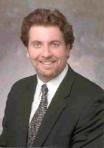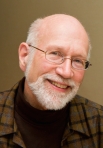The McDevitt Center is pleased to announce that Dmitri Alperovitch (CrowdStrike, Inc.); John S. Bay, Ph.D. (Cyber Research Institute); Michael L. Kearn, CISSP (US Bank); and Carl Landwehr, Ph.D. (McDevitt Visiting Professor of Computer Science) have all confirmed that they will be joining Dr. Marcus Rogers (Endowed McDevitt Chair in Computer Science at Le Moyne College), for our May 20th program. To register for this exciting and informative symposium, visit http://www.lemoyne.edu/cyberscurity.
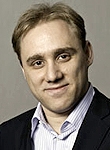 Dmitri Alperovitch
Dmitri Alperovitch
Dmitri Alperovitch is the Co-Founder and CTO of CrowdStrike Inc., leading its Intelligence, Labs and Product teams. A renowned computer security researcher, he is a thought1leader on cybersecurity policies and state tradecraft. Prior to founding CrowdStrike, Dmitri was a Vice President of Threat Research at McAfee, where he led company’s global Internet threat intelligence analysis and investigations. As a recognized authority on cyberespionage, cyber warfare, online organized criminal activity, and cybersecurity, Alperovitch has significant experience working as a subject matter expert with all levels of U.S. and international policy makers, intelligence and law enforcement agencies on analysis, investigations, and profiling of transnational organized criminal activities and cyber threats from terrorist and nation-state adversaries. He is a well-respected technical and policy thinker on the most difficult global cybersecurity issues, and is a frequent speaker at military, intelligence, law-enforcement, academic and security industry conferences.
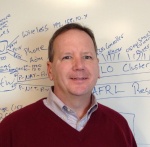 John S. Bay, Ph.D.
John S. Bay, Ph.D.
Dr. John S. Bay began his career in academia, as a professor of electrical and computer engineering at Virginia Polytechnic Institute and State University, in Blacksburg, VA. He taught mechatronics and robotics and performed research in control theory, artificial intelligence, and machine learning. After leaving academia, he worked as an Engineering Fellow for the Raytheon Company; a Program Manager for the Defense Advanced Projects Agency (DARPA); Chief Scientist for the Air Force Research Laboratory Information Directorate in Rome, NY; and as Chief Scientist for Assured Information Assurance (AIS), also in Rome. In 2013 he formed an independent consulting business and in 2014 became the Executive Director of the Cyber Research Institute, which is a not-for-profit scientific research corporation. He is a Fellow of the IEEE, author of 74 publications, and has won numerous awards for his teaching, research, and service in electrical engineering, embedded systems, military command & control, and cybersecurity.
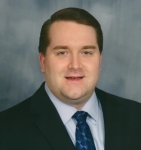 Michael L. Kearn, CISSP
Michael L. Kearn, CISSP
Michael Kearn is responsible for assessing and analyzing technology solutions on behalf of the Consumer Banking division of US Bank. As an Information Security Officer (ISO), he regularly consults with technology and operational risk management executives as an information security subject matter expert. Within his architect role, Mr. Kearn partners on projects for the Consumer Bank and is responsible for ensuring those projects align with information security policy and industry best practices for securing systems. Mr. Kearn brings more than seventeen years of varied experience in Information Technology to his current role.
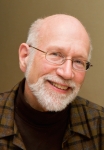 Carl Landwehr, Ph.D.
Carl Landwehr, Ph.D.
Dr. Landwehr received his B.S. from Yale University in engineering and applied science and his Ph.D. from the University of Michigan in computer and communication sciences. His graduate work included development work on the MERIT computer network, which eventually became the Internet. After teaching computer science at Purdue University, he joined the U.S. Naval Research Laboratory (NRL), where his interest in understanding how we can have confidence in what a computer program does led him to a 23-year career in what is now called cybersecurity research and development. After leaving NRL in 1999, he spent 12 years developing, funding, managing, and guiding national cybersecurity research programs for the National Science Foundation, the Intelligence Advanced Research Projects Activity, and the Defense Advanced Research Projects Agency. In addition to his contributions to the research literature, Dr, Landwehr served four years as editor-in-chief of IEEE Security and Privacy Magazine. He is an IEEE Fellow for his contributions to cybersecurity and was in the first class of 11 individuals inducted into the National Cyber Security Hall of Fame in 2012.
This event may quality for CPEs (CIA and CPA). For for updated CPE credit information (which should be announced in early May) and for additional biographical information on each speaker please visit CNY Cybersecurity Connections: Advanced Persistent Threats, The Cloud, and Mobile.
To receive the latest information on this event please follow this blog, use #cnycybersecurity on Twitter, or e-mail mcdevittcenter@lemoyne.edu to be added to the mailing list.






